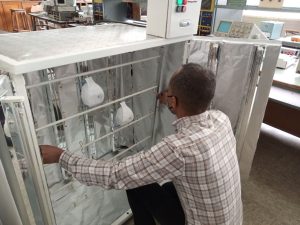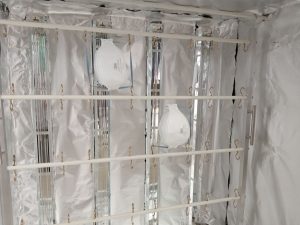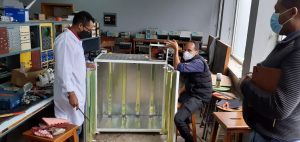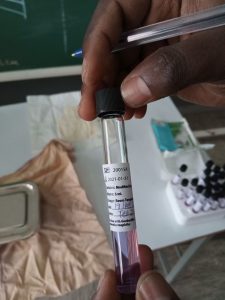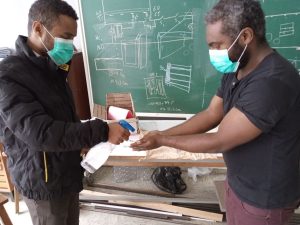Infographic materials and videos were developed to educate clinical staff and hospital administrators on the mechanism of UV-C decontamination developed with human-centered design principles in mind and made available in English, Portuguese, and Spanish.
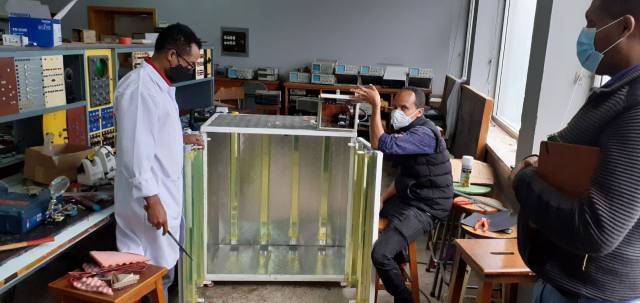
New publication: UV-C Decontamination
Multidisciplinary team invents low-cost decontamination cabinet that quintuples N95 mask supplies, ideal for low-resource settings.
A new publication in the New England Journal of Medicine (NEJM) Catalyst details the results of a global pilot that provided rapid decontamination of hundreds of thousands of N95 to protect healthcare providers during COVID-19.
The COVID-19 pandemic caused worldwide shortages in personal protective equipment (PPE) – particularly N95 masks – leaving healthcare providers at-risk. The case study – Global Collaboration on a UV-C Cabinet to Decontaminate and Reuse N95 Respirators in Low- and Middle-Income Environments – covers the work of Lifebox and a coalition of optical engineers, physicists, and clinicians to develop an affordable, enclosed cabinet to decontaminate N95 respirators with UV-C irradiation – a disinfection method that kills or inactivates microorganisms such as the SARS-CoV-2 virus.
The pilot used simple and locally accessible technology, with construction costing approximately $500–$1,500 (depending on location). Twenty-one hospitals in low- and middle-income countries took part in the pilot to construct the UV-C cabinets, with each cabinet reprocessing nearly 5,000 masks per day at maximum capacity, or 1,500 masks in a standard eight-hour workday.
The study estimates that more than 930,000 masks were decontaminated up to January 2022, with savings to the clinical sites of $3.7 million.
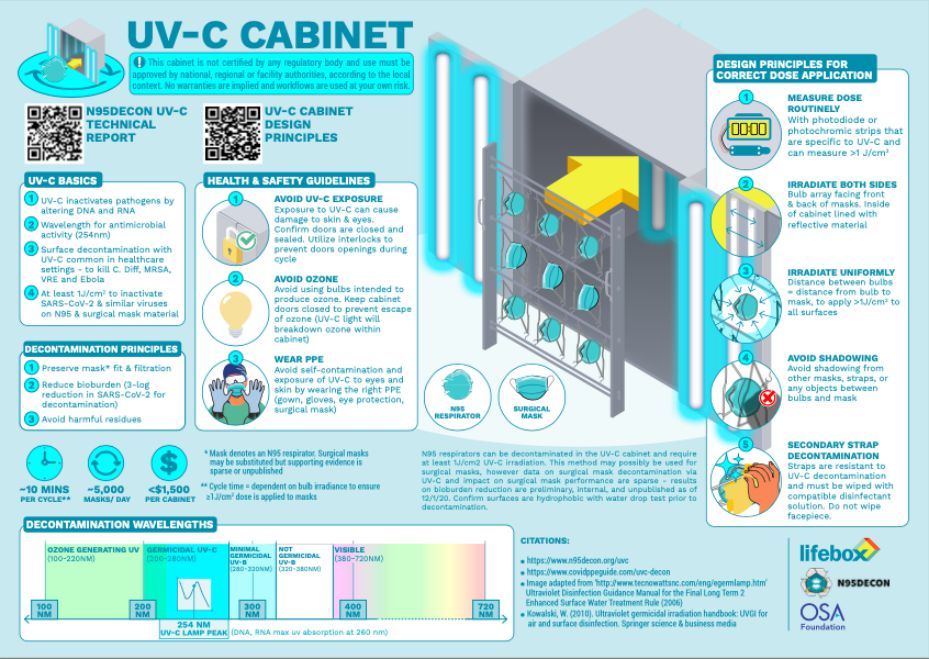
Multidisciplinary team invents low-cost decontamination cabinet that quintuples N95 mask supplies, ideal for low-resource settings.
This work was a collaboration between Factor[e] Ventures, Addis Ababa Institute of Technology, Lifebox, N95DECON, Optica Foundation (formerly Optical Society of America), The Pernambuco State Foundation for Science & Technology (FACEPE).
“This work provided a unique solution that expanded the available supply of N95 respirators by up to five times through use of a simple, affordable decontamination strategy. By sharing expertise and drawing upon similar experiences, this collaborative team was able to innovate a device to respond to one of the critical challenges of the COVID-19 pandemic.”
AUTHORS
Nichole Starr, MD, MPH, Natnael Gebeyehu, MD, Anderson S. L. Gomes, PhD, E. Rosas, PhD, Tyler Chen, MS, Dawit Assefa, PhD, Jared Shless, Jit Bhattacharya, PhD, Arnab Bhattacharya, PhD, David Robinowitz, MD, MHS, MS, Martin Purschke, PhD, Thomas Baer, PhD
This work was a collaboration between Factor[e] Ventures, Addis Ababa Institute of Technology, Lifebox, N95DECON, Optica Foundation (formerly Optical Society of America), The Pernambuco State Foundation for Science & Technology (FACEPE).
“This work provided a unique solution that expanded the available supply of N95 respirators by up to five times through use of a simple, affordable decontamination strategy. By sharing expertise and drawing upon similar experiences, this collaborative team was able to innovate a device to respond to one of the critical challenges of the COVID-19 pandemic.”
AUTHORS
Nichole Starr, MD, MPH, Natnael Gebeyehu, MD, Anderson S. L. Gomes, PhD, E. Rosas, PhD, Tyler Chen, MS, Dawit Assefa, PhD, Jared Shless, Jit Bhattacharya, PhD, Arnab Bhattacharya, PhD, David Robinowitz, MD, MHS, MS, Martin Purschke, PhD, Thomas Baer, PhD


